第68章
He had carefully drenched it with lavender water, and to this fact owed, perhaps, his immunity from the post of foreman on the jury--for, say what you will about the English, they have a deep instinct for affairs.
He found himself second in the front row of the jury box, and through the odour of "Sanitas" gazed at the judge's face expressionless up there, for all the world like a bewigged bust. His fellows in the box had that appearance of falling between two classes characteristic of jurymen. Mr. Bosengate was not impressed. On one side of him the foreman sat, a prominent upholsterer, known in the town as "Gentleman Fox." His dark and beautifully brushed and oiled hair and moustache, his radiant linen, gold watch and chain, the white piping to his waistcoat, and a habit of never saying "Sir" had long marked him out from commoner men; he undertook to bury people too, to save them trouble; and was altogether superior. On the other side Mr. Bosengate had one of those men, who, except when they sit on juries, are never seen without a little brown bag, and the appearance of having been interrupted in a drink. Pale and shiny, with large loose eyes shifting from side to side, he had an underdone voice and uneasy flabby hands. Mr. Bosengate disliked sitting next to him. Beyond this commercial traveller sat a dark pale young man with spectacles;beyond him again, a short old man with grey moustache, mutton chops, and innumerable wrinkles; and the front row was completed by a chemist. The three immediately behind, Mr. Bosengate did not thoroughly master; but the three at the end of the second row he learned in their order of an oldish man in a grey suit, given to winking; an inanimate person with the mouth of a moustachioed cod-fish, over whose long bald crown three wisps of damp hair were carefully arranged; and a dried, dapperish, clean-shorn man, whose mouth seemed terrified lest it should be surprised without a smile.
Their first and second verdicts were recorded without the necessity for withdrawal, and Mr. Bosengate was already sleepy when the third case was called. The sight of khaki revived his drooping attention.
But what a weedy-looking specimen! This prisoner had a truly nerveless pitiable dejected air. If he had ever had a military bearing it had shrunk into him during his confinement. His ill-shaped brown tunic, whose little brass buttons seemed trying to keep smiling, struck Mr. Bosengate as ridiculously short, used though he was to such things. 'Absurd,' he thought--'Lumbago! Just where they ought to be covered!' Then the officer and gentleman stirred in him, and he added to himself: 'Still, there must be some distinction made!' The little soldier's visage had once perhaps been tanned, but was now the colour of dark dough; his large brown eyes with white showing below the iris, as so often in the eyes of very nervous people--wandered from face to face, of judge, counsel, jury, and public. There were hollows in his cheeks, his dark hair looked damp;around his neck he wore a bandage. The commercial traveller on Mr. Bosengate's left turned, and whispered: "Felo de se! My hat! what a guy!" Mr. Bosengate pretended not to hear--he could not bear that fellow!--and slowly wrote on a bit of paper: "Owen Lewis." Welsh!
Well, he looked it--not at all an English face. Attempted suicide--not at all an English crime! Suicide implied surrender, a putting-up of hands to Fate--to say nothing of the religious aspect of the matter. And suicide in khaki seemed to Mr. Bosengate particularly abhorrent; like turning tail in face of the enemy; almost meriting the fate of a deserter. He looked at the prisoner, trying not to give way to this prejudice. And the prisoner seemed to look at him, though this, perhaps, was fancy.
The Counsel for the prosecution, a little, alert, grey, decided man, above military age, began detailing the circumstances of the crime.
Mr. Bosengate, though not particularly sensitive to atmosphere, could perceive a sort of current running through the Court. It was as if jury and public were thinking rhythmically in obedience to the same unexpressed prejudice of which he himself was conscious. Even the Caesar-like pale face up there, presiding, seemed in its ironic serenity responding to that current.
"Gentlemen of the jury, before I call my evidence, I direct your attention to the bandage the accused is still wearing. He gave himself this wound with his Army razor, adding, if I may say so, insult to the injury he was inflicting on his country. He pleads not guilty; and before the magistrates he said that absence from his wife was preying on his mind"--the advocate's close lips widened--"Well, gentlemen, if such an excuse is to weigh with us in these days, I'm sure I don't know what's to happen to the Empire."'No, by George!' thought Mr. Bosengate.
The evidence of the first witness, a room-mate who had caught the prisoner's hand, and of the sergeant, who had at once been summoned, was conclusive and he began to cherish a hope that they would get through without withdrawing, and he would be home before five. But then a hitch occurred. The regimental doctor failed to respond when his name was called; and the judge having for the first time that day showed himself capable of human emotion, intimated that he would adjourn until the morrow.
Mr. Bosengate received the announcement with equanimity. He would be home even earlier! And gathering up the sheets of paper he had scribbled on, he put them in his pocket and got up. The would-be suicide was being taken out of the court--a shambling drab figure with shoulders hunched. What good were men like that in these days!